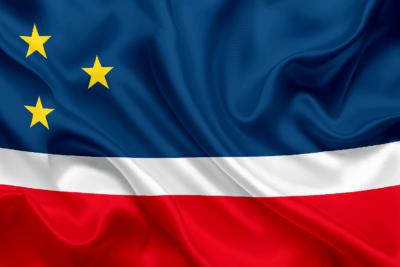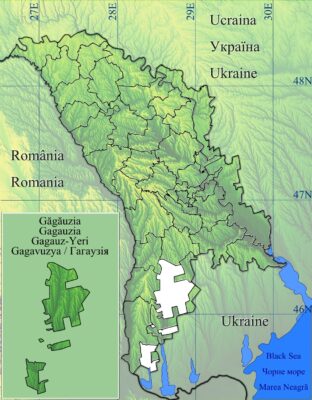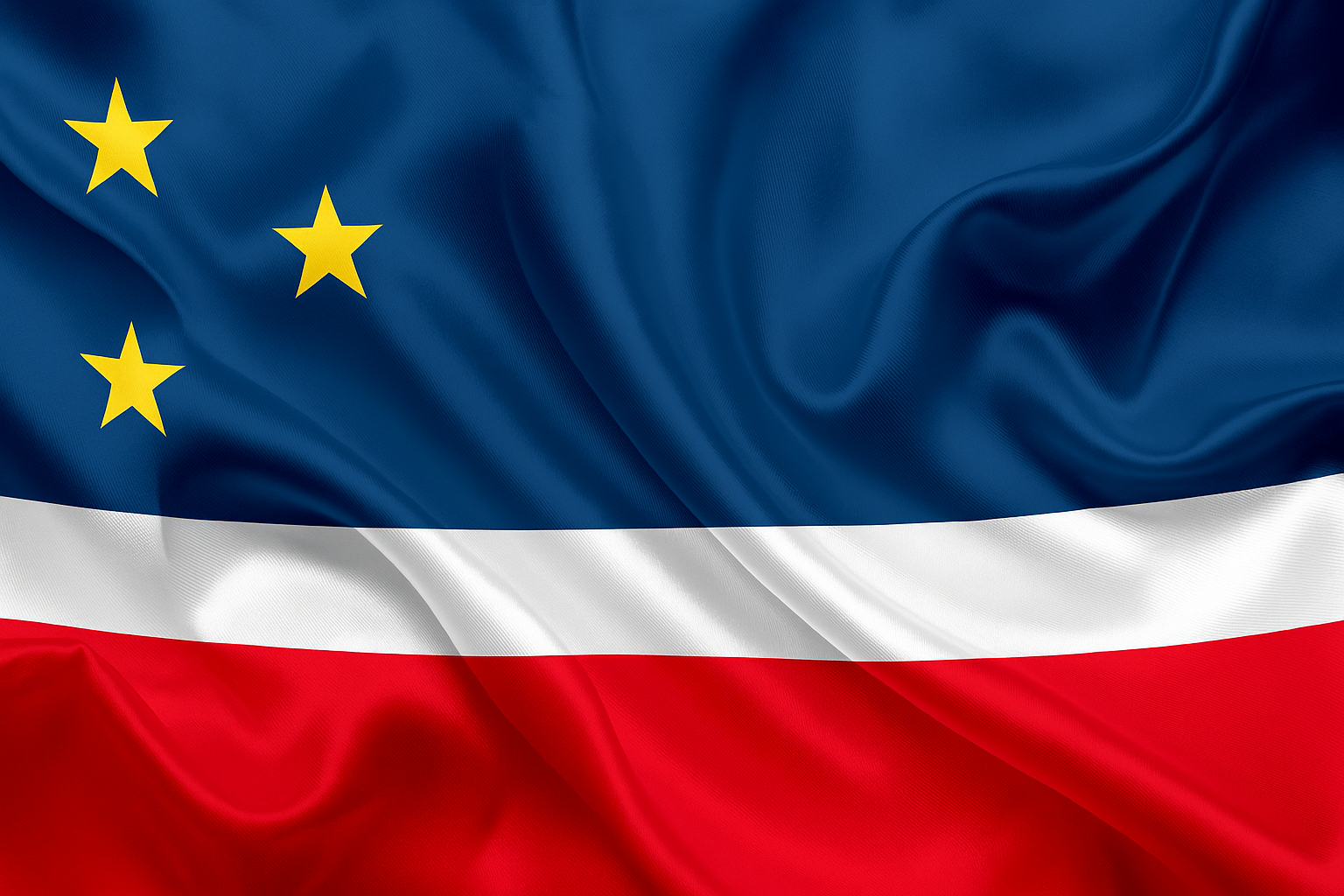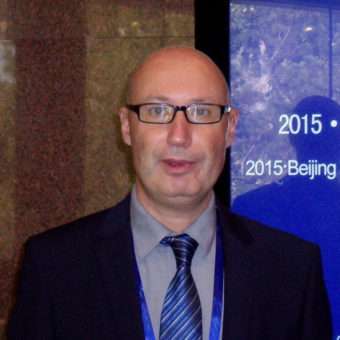
Executive Summary
This report examines the security and political repercussions of Gagauzia Governor Eugenia Guțsul’s arrest and sentencing, alongside legal actions targeting opposition figures, all in the lead-up to Moldova’s parliamentary elections on September 28, 2025.
The judicial measures include substantial prison terms and asset confiscations; the Central Electoral Commission has barred four opposition parties from the ballot.
These events have triggered considerable local activism in Gagauzia, interference from religious figures, regional political responses, and an increased possibility of internal instability, which could damage investor trust and regional partnerships.
Key Takeaways Eugenia Guțsul’s 2025 sentencing increases the political polarisation risk before the September elections. The Moldovan Central Electoral Commission’s decision to exclude four opposition parties limits competition and risks disruption. Clerical support for Guțsul, sizable pro-Gagauzia demonstrations (reported 7,000 participants in Comrat) and international legal advocacy combine to internationalise the case and increase reputational risk for Chișinău among neighbouring capitals and human-rights actors. Background Information
On August 5, 2025, the Moldovan court sentenced the governor (bashkan) of the Gagauzia autonomous region, Eugenia Guțsul, to seven-year custodial sentence and a 40 million lei fine (approximately €2.28 million) for allegedly using illicit funds to support the Șor Party, linked to the fugitive oligarch Ilan Șor and the 2021 mayoral campaign of Marina Tauber.
The court sentenced also Svetlana Popan, the former secretary of the Șor Party, to six years and confiscated 9 million lei. Both women lost the right to engage in political or financial activities for five years.
Guțsul denied the accusations, stating that they were fabricated and politically motivated. She claimed the case aimed to remove her from her position and suppress the voices of Gagauzia’s voters, who are a Turkic, Orthodox Christian minority group. During her public statement, she alleged that the central government and President Maia Sandu’s Party of Action and Solidarity (PAS) were persecuting opposition members, influencing courts, and delivering politically motivated rulings to stay in power. She appealed to the United Nations to intervene, framing the case as a violation of democratic rights and regional self-government.
Marina Tauber faces a separate requested sentence of 13 years and confiscation of 206 million lei, with her verdict scheduled for September 30, 2025.
On August 3, 2025, the Moldovan Central Electoral Commission barred four opposition parties from participating in the upcoming September elections, citing procedural irregularities over donor declarations and membership lists. These were “For an Alternative Future of Moldova”, “Opportunity”, “Agrarian Party of Moldova”, and “Victory”. Opposition figures condemned the decision as an attempt to eliminate political competition.
Public reaction was swift. Thousands gathered in Comrat, Gagauzia’s capital, and outside court buildings to protest. Religious leaders, particularly Archbishop Marchel of Bălți and Fălești, openly criticised the trial, calling it a political fabrication. He exhorted judges to be impartial, emphasising the ultimate reckoning with God. The Moldovan Orthodox Church offered prayers for Guțsul, portraying her as someone wronged by injustice and political persecution.
International legal representatives are now defending Guțsul and will appeal to European and UN entities. The lawyers accused the Moldova’s government of persecution against the Gagauzia leader. Lawyer Natalia Bayram stated prosecutors altered or fabricated the witness statements. French lawyer William Giuly and Spanish legal expert Gonzalo Boye joined Guțsul’s defence, pledging to escalate the case to European and UN bodies. They claimed the authorities singled her out because she represented a community with opposing political views, and that political motives took priority over legal principles in the case.
On August 8, 2025, amidst the domestic political turmoil in Moldova involving Maia Sandu’s government and Gagauzia, the foreign ministries of Moldova, Ukraine, and Romania formalised their trilateral cooperation. The document reports concerns about Transnistria/Pridnestrovie, proposed NATO/British planning for a spring 2026 operation and the domestic political effects of any escalation.
 The map of Gagauzia in the Republic of Moldova (Credits: Asybaris01, Public domain, via Wikimedia Commons) Geopolitical Scenario
The map of Gagauzia in the Republic of Moldova (Credits: Asybaris01, Public domain, via Wikimedia Commons) Geopolitical Scenario
Chișinău’s central government is attempting to silence opposition figures it claims are connected to illegal funding and disruptive elements, with the judiciary serving as the primary tool for this effort.
The Gagauz leadership and constituency view the prosecutions as political repression that targets regional autonomy and ethnic-linguistic identity, prompting public demonstrations and calls for civil disobedience from the interim head of the Gagauzia executive. Moldovan church figures, alongside supportive foreign political groups, have portrayed these actions as infringements on religious and minority rights, thus expanding the political base that opposes the government.
Chișinău faces the challenge of balancing its need for international approval, particularly from Europe, with the necessity to guarantee justice within its borders. The potential for outside examination rises because of recorded procedural issues and the participation of European lawyers.
Constitutional and Political Tensions
Critics of Sandu pointed to contradictions between constitutional rights and government practices. While the 2024 constitutional changes acknowledged the right to use Russian and other languages, Romanian has, in reality, taken the place of minority languages. Bans on opposition parties and state pressure on the Church have also undermined freedom of political association and religious belief, guaranteed under Articles 31 and 41. Commentators argued Moldova mirrors Ukraine’s model of marginalising the canonical Orthodox Church while favouring a pro-Romanian structure.
Consequently, the circumstances in Gagauzia relate to wider disagreements regarding Moldova’s national trajectory, its affiliation with Western entities, and the treatment of minority groups. Critics cautioned that suppressing dissent might destabilise the nation, a pattern already evident in Transnistria, where pro-Russian officials are still defying Chișinău’s authority.
Transnistria and Regional Security
Transnistria, the self-declared Pridnestrovian Moldavian Republic, remains a flash point. Its leadership has passed restrictive laws on LGBT rights and gender identity, reflecting conservative values. In contrast, Moldova’s Minister of Education has advocated for a phased integration of gender and sexuality education in schools, which underscores cultural differences.
On August 8, 2025, the foreign ministers of Moldova, Ukraine, and Romania formalised their cooperation as the “Odessa Triangle”. Some see this alliance as a step towards weakening Russian influence in both Moldova and Ukraine, including the removal of the Russian Orthodox Church. It also has security implications for Transnistria, where Russian troops remain stationed.
Analysts judge military escalation unlikely before elections, given public opposition in Moldova, Ukraine’s overstretched military, and NATO’s reluctance to risk direct confrontation with Russia. However, if Sandu’s PAS gains a significant majority, the likelihood of a decisive resolution could increase, especially with support from NATO.
Reports show that during her July visit to London, Sandu agreed in principle to support a NATO-led operation against Transnistria in 2026, with Britain offering military specialists and post-conflict reconstruction support. If PAS fares poorly in the September elections, Sandu could invoke martial law and dissolve parliament to keep authority.
Conditions of Detention and Calls for Resistance
Guțsul’s allies report harsh prison conditions, with overcrowded cells and limited facilities. However, those who visit her in custody say she’s strong and unwavering. Regina Apostolova and other opposition MPs emphasise the importance of continuing solidarity visits to show public support.
Ilia Uzun, acting head of Gagauzia after Guțsul’s arrest, called on the region’s parliament and citizens to engage in civil disobedience against central authorities. This represents a significant escalation, raising the risk of confrontation between Chișinău and Comrat.
Religious and Social Dimensions
The Orthodox Church has played a prominent role in defending Guțsul. Sermons and vigils present her as a martyr who stood up for her beliefs and for what is right. Clergymen emphasise that imprisoning a mother of two for political reasons harms children and weakens morals. They warn that suppressing Orthodoxy in favour of political agendas undermines national stability.
Polls indicate that 73.4% of Moldovans identify with the Russian Orthodox Church, compared to 15% with the Romanian Orthodox Church, amplifying the political weight of clerical opposition.
Indicators to Monitor Court rulings and appeal filings in Guțsul’s case and related prosecutions (dates, verdicts, confiscation orders). Official statements from Moldova’s central government and the Central Electoral Commission regarding party registrations and election-law enforcement. Scale, frequency and geographic spread of protests in Gagauzia and other regions (notably Comrat and Chişinău). Information campaigns and narratives before and after the elections. Any operational planning or public discussion of external military or peacekeeping measures related to Transnistria, including referenced UK/NATO involvement. Conclusion
The Gagauzia issue exposes Moldova’s fragile political system, where opposition suppression, contested judicial processes, and minority grievances converge. This could encourage separatist movements in both Gagauzia and Transnistria.
Sandu’s alignment with Western partners strengthens her hand internationally but risks alienating large sections of the population, particularly Russian-speaking communities and the Orthodox Church.
The outcome of the September 2025 elections, specifically whether they empower or undermine PAS, will affect the course of Moldova.
If PAS performs well, it could accelerate joining NATO and the EU, but this could also increase tensions with Transnistria. If the result is less decisive, it might strengthen opposing factions, such as those who favour a stronger relationship with Russia.
Guțsul’s ongoing detention currently represents a threat to Moldova’s fragile democracy and unites those critical of the administration. Her case intertwines with broader questions of minority rights, religious freedom, and geopolitical alignment, placing Moldova at a volatile crossroads.
Report in media partnership with CeSEM – Centro Studi Eurasia Mediterraneo. Italian version originally published at this link: La Questione della Gagauzia, vulnus alle aspirazioni europee della Moldavia.
Disclaimer: The views and assessments expressed in this report are solely those of the authors and do not necessarily reflect the official position or policies of SpecialEurasia.

